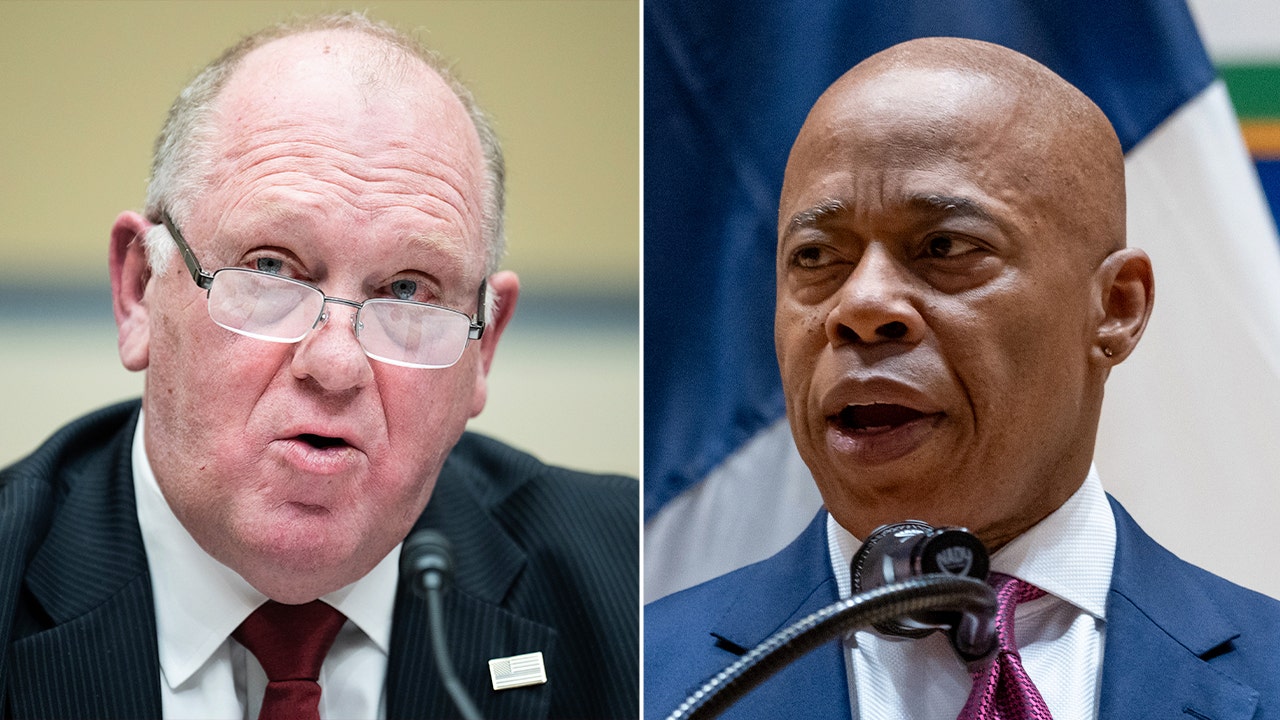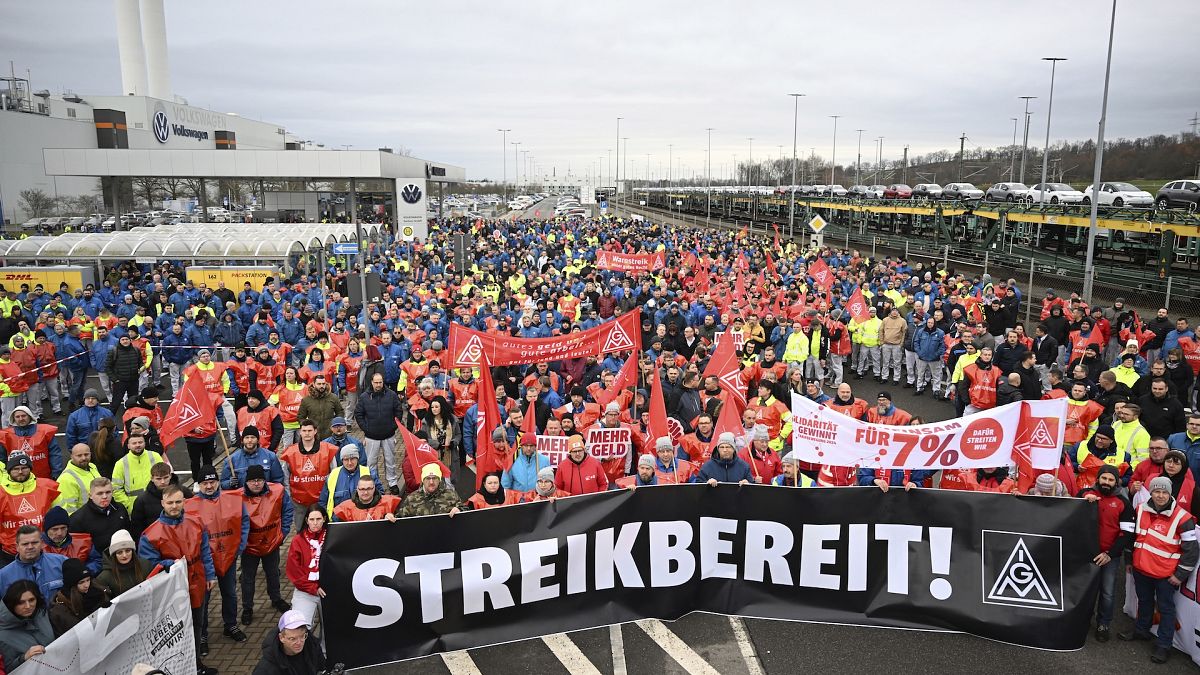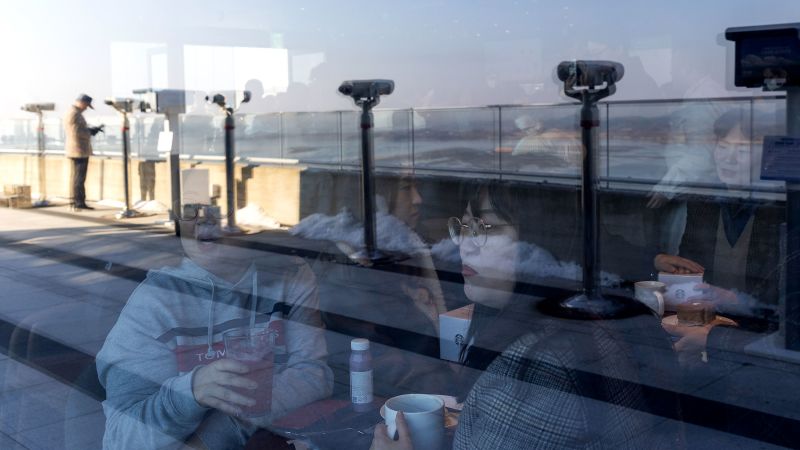The two-hour stoppages included the company’s base plant at Wolfsburg, where workers protested against a cost-cutting drive by the car maker’s management which includes the threat of plant closures in Germany.
Volkswagen workers have been holding rolling two-hour strikes at nine plants across Germany in protest at planned pay cuts and factory closures that the company says are necessary to cope with a slowing European car market.
The stoppages included the company’s base plant at Wolfsburg, where workers have been protesting against a cost-cutting drive by VW management which includes the possibility of the car maker’s first plant closures in Germany.
Euronews’ Berlin correspondent Liv Stroud described how “the sounds of whistles and shouts” could be heard across Wolfsburg, home to Germany’s Volkswagen headquarters.
She explained: “Tens of thousands of VW workers have joined warning strikes across Germany, as discussions between the company and unions failed to reach an agreement.
“VW is planning to close at least three plants, slash thousands of jobs and cut, pay by 10%.
“The company blames rising wages, a lack of raw materials and a slow transition to electric vehicles.
“With snap elections coming up in February, and the car industry the backbone of the German economy, it seems more likely that the country will vote to change leadership.”
Cost-cutting measures needed, VW insists
Volkswagen has argued that it must lower costs in Germany to levels achieved by competitors and by Volkswagen plants in eastern Europe and South America.
However, chief employee representative Daniela Cavallo has said employees should not shoulder the burden of management failures to develop attractive products and come up with a cheaper, entry-level electric vehicle.
“We demand that all make their contribution – management and the shareholder side as well,” Cavallo said at the rally in Wolfsburg as employees drummed, whistled and clapped.
The next round of talks in a week’s time “is likely to set the course – rapprochement or escalation. We are ready for both,” she added.
The so-called warning strikes, a common tactic in German wage negotiations, are taking place as part of talks for a new labour agreement after a mandatory peace period that banned strikes expired on Sunday.
The IG Metall industrial union said any job actions beyond those occurring on Monday would be announced later.
Union resisting company demand for pay cuts
The company says it needs a 10% pay cut for 120,000 German workers and cannot avoid shedding factory capacity that is no longer needed. Employee representatives say the company has proposed closing three of its German plants.
Thorsten Gröger, the regional leader of the IG Metall industrial union in Lower Saxony, where Volkswagen has its headquarters, said that the company would not be able to “overlook” the walkouts. “If necessary, this will be one of the toughest conflicts Volkswagen has ever seen,” he said.
The company has not publicly detailed its plans but is facing a drop in demand in Europe, higher costs and increasing competition from Chinese car makers.
It has built factories to supply a European car market of 16 million in annual vehicle sales, but now faces demand for around 14 million, Volkswagen brand head Thomas Schaefer was quoted as saying in the Welt am Sonntag newspaper. As Volkswagen has a quarter of the market, that represents a loss of 500,000 cars a year.
Strong profits in China had helped cover higher costs for years but, Schaefer said, but the changing environment now means that “it’s high time to address this”.
The walkouts began at a plant in Zwickau in eastern Germany and were to continue at plants in Braunschweig, Chemnitz, Dresden, Emden, Hanover, Kassel, and Salzgitter.
The next negotiations are due to be held next Monday, 9 December.
Read the full article here
















